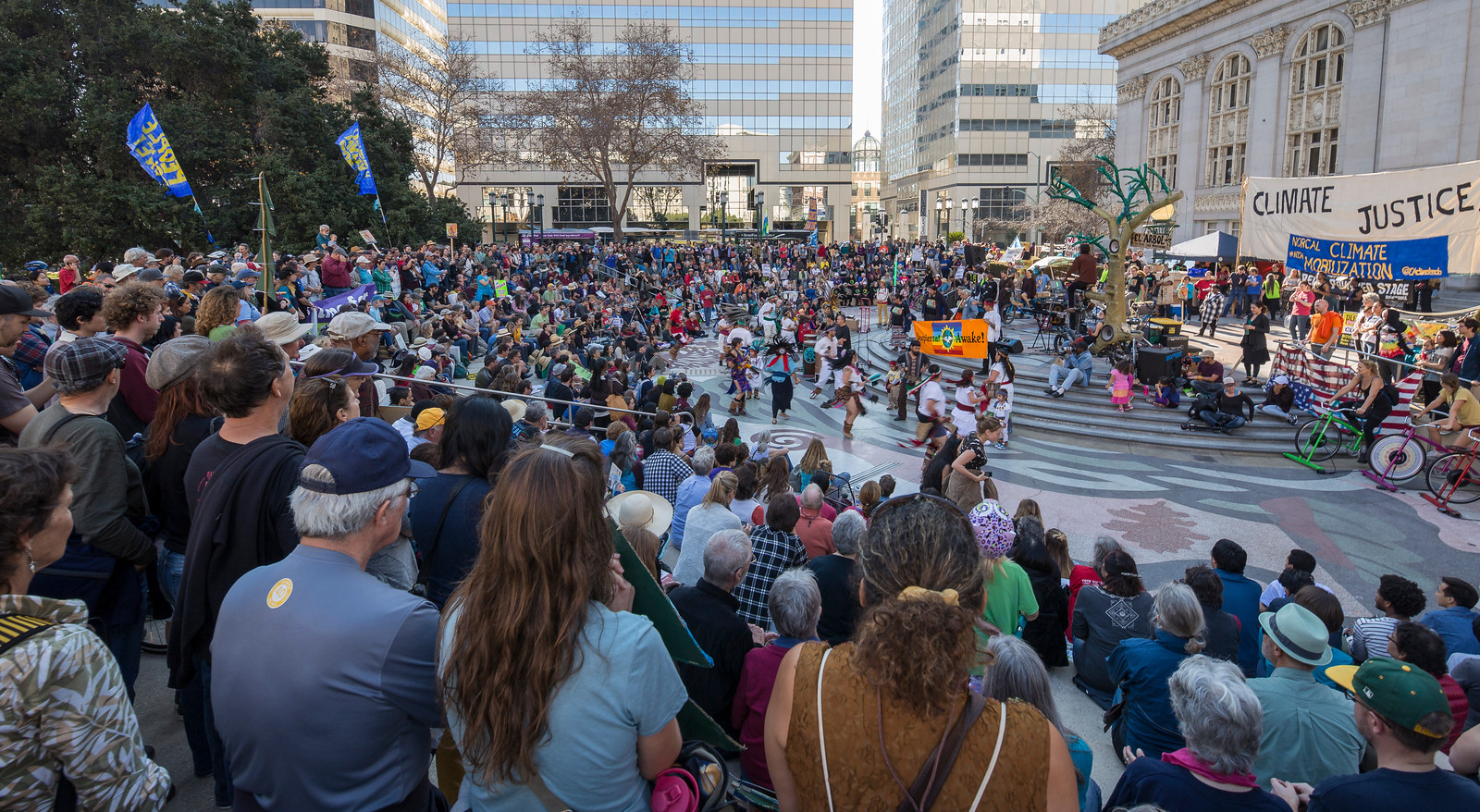Ninth Circuit rules against Oakland, but the fight is far from finished
In a 2-1 decision, the Ninth Circuit Court of Appeals ruled this week against the City of Oakland in a breach of contract case brought by developers who claim they have a vested right to build a coal export terminal in West Oakland. The Oakland City Council passed a ban on storage and handling of coal in June 2016 in response to extensive evidence showing that coal poses substantial health and safety risks to workers and residents.
The two-judge majority held that the developers’ contractual rights trumped the City of Oakland’s right to protect its residents from potential health and safety impacts on workers and Oakland residents.
The opinion, written by recent Trump appointee Kenneth K. Lee and joined by George W. Bush appointee Carlos Bea, upheld the decision of federal judge Vince Chhabria to allow new expert testimony challenging the City of Oakland’s determination that the health and safety risks of allowing the the Oakland Bulk and Oversized Terminal (OBOT) to store and handle coal were “substantial,” while requiring the City to rely solely on evidence that it had gathered before it adopted the ban.
Because the court ruled in favor of the developers on technical grounds, the deeper concerns animating Oakland’s opposition to coal remain unaddressed. Neither Judge Chhabria, nor the two appeals court judges who ruled against Oakland, found that a coal terminal would be “safe.” None of the judges contradicted the assertion that a coal terminal would pose a health and safety threat to Oaklanders. Their decisions were, instead, technical matters of contract law. The conclusion to the Ninth Circuit decision states this clearly:
“In affirming, we do not opine on the ultimate issue of any alleged health or safety impact of OBOT’s proposed plan. Nor do we judge the economic or environmental merits of the Agreement to develop a commercial terminal that may house and transport coal.“
Judge Lawrence L. Piersol dissented from the panel’s two-judge majority, arguing that the decision of the other two Ninth Circuit panelists “subverts the public proceedings of governmental entities” (such as the City of Oakland) in a manner that the California Supreme Court has previously ruled a judicial error. California’s high court ruled that “extra-record evidence can never be admitted merely to contradict the evidence the administrative agency relied on … or to raise a question regarding the wisdom of that decision.” Having done just that, the two judges in essence allowed Judge Chhabria to second guess the City of Oakland’s evaluation and decision.
“The city was ambushed here,” said Ted Franklin, a retired attorney and member of No Coal in Oakland. “It was held to what was in front of it during its proceedings but the judge allowed the proponents of the project to present an entire battery of expert testimony that was never before the city,” Franklin said.
Excluding the extra-record evidence, Piersol concluded that “based on the entire record before the city, a reasonable mind might accept as adequate the city’s conclusion that coal handling and storage at the terminal would pose a substantially dangerous threat to the health and safety to community members.”
In the wake of this week’s decision:
- Judge Piersol’s dissent may suggest grounds for the City of Oakland to request that the Ninth Circuit appoint an 11-member en banc panel to rehear the case.
- The narrow, technical scope of the Ninth Circuit’s decision leaves open a path for Oakland to hold a future hearing that enlarges and buttresses evidence that coal storage and handling at the city’s West Gateway would pose substantial danger to the health and safety of OBOT workers and Oakland residents.
- The current economic collapse of the U.S. coal industry, and the bankruptcy filing by the proposed operators of an Oakland Coal Terminal, Insight Terminal Solutions, suggests that the proposal to build a coal terminal in Oakland is economically infeasible.
- Any further attempt to push this economically infeasible, toxic project forward remains subject to environmental review and regulation that might well block its progress on grounds distinct from those considered by the court, i.e., distinct from grounds on which the Oakland City Council enacted its 2016 ban.
No Coal in Oakland remains steadfast in its opposition to the construction of a coal terminal on the West Gateway site. As Ernesto Arevalo, Northern California program director at Communities for a Better Environment, put it, “Oakland’s low-income communities of color are already subjected to cumulative impacts of many pollution sources. The city has the right and the duty to protect the people of Oakland from the transport, handling and storage of coal near residents’ doorsteps.”
Notwithstanding the Ninth Circuit’s decision, Ms. Margaret Gordon, cofounder of West Oakland Environmental Indicators Project, states that “As a third-generation resident, I have fought for environmental justice in West Oakland for over 20 years and will continue to fight the developer’s plans of putting profit over people and his total disregard for West Oakland residents, and the health and safety of all who live, work, play and pray in the city.” Ms. Gordon is joined by a vast majority of Oakland residents, Oakland’s elected government, and the mayors of eleven East Bay cities.
